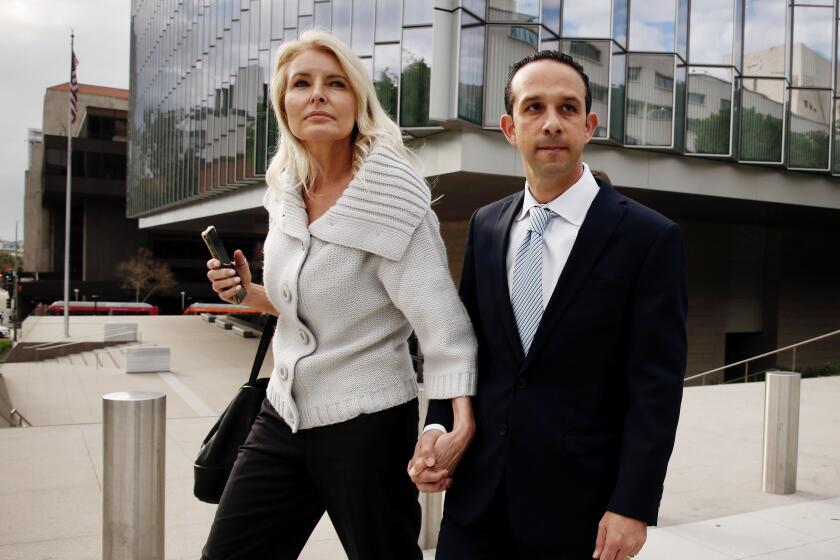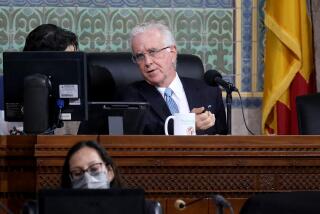Corruption is a hot topic at City Hall. Here’s how council candidates plan to fight it
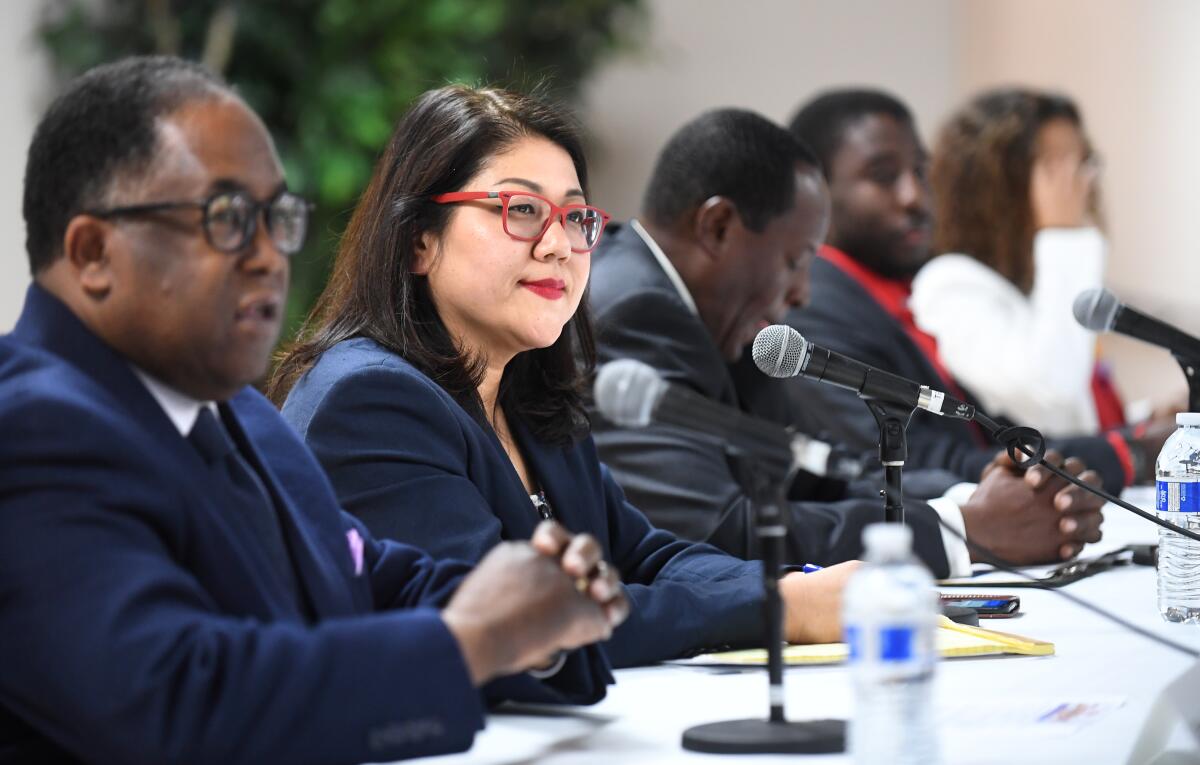
As candidates face off this fall for two seats on the Los Angeles City Council, a debate has entered both campaigns: What’s the best way to root out corruption at City Hall?
Federal investigators have alleged that real estate developers bribed city officials in exchange for help with their projects. The probe has cemented long-standing suspicions for many about pay-to-play practices at City Hall — and spurred the candidates in the Nov. 3 election to offer new proposals for tackling corruption.
Behind those proposals lie some thorny questions: Should L.A. take big, bold strokes, like expanding the size of the City Council? Should it reform the institutions it already has, like the Ethics Commission, created decades ago as an in-house watchdog? And can any reform really stop someone bent on breaking the law?
The issue has taken on added urgency in recent months, with authorities arresting Councilman Jose Huizar and securing a guilty plea from former Councilman Mitchell Englander. The probe is ongoing.
Councilman David Ryu, who is fighting to keep his seat in a district stretching from Silver Lake to Sherman Oaks, has called for a new office of anti-corruption — an inspector general — to watch over the city’s planning and development decisions. He wants to scale back the power of council members to override decisions by planning commissioners. And he is pushing to prevent council members from voting on issues involving their own campaign contributors.
“It’s unfortunate that it had to take FBI probes and investigations and arrests to get this far,” said Ryu, who is running for his second term. The corruption probe, he added, is giving the city “a real opportunity for change.”
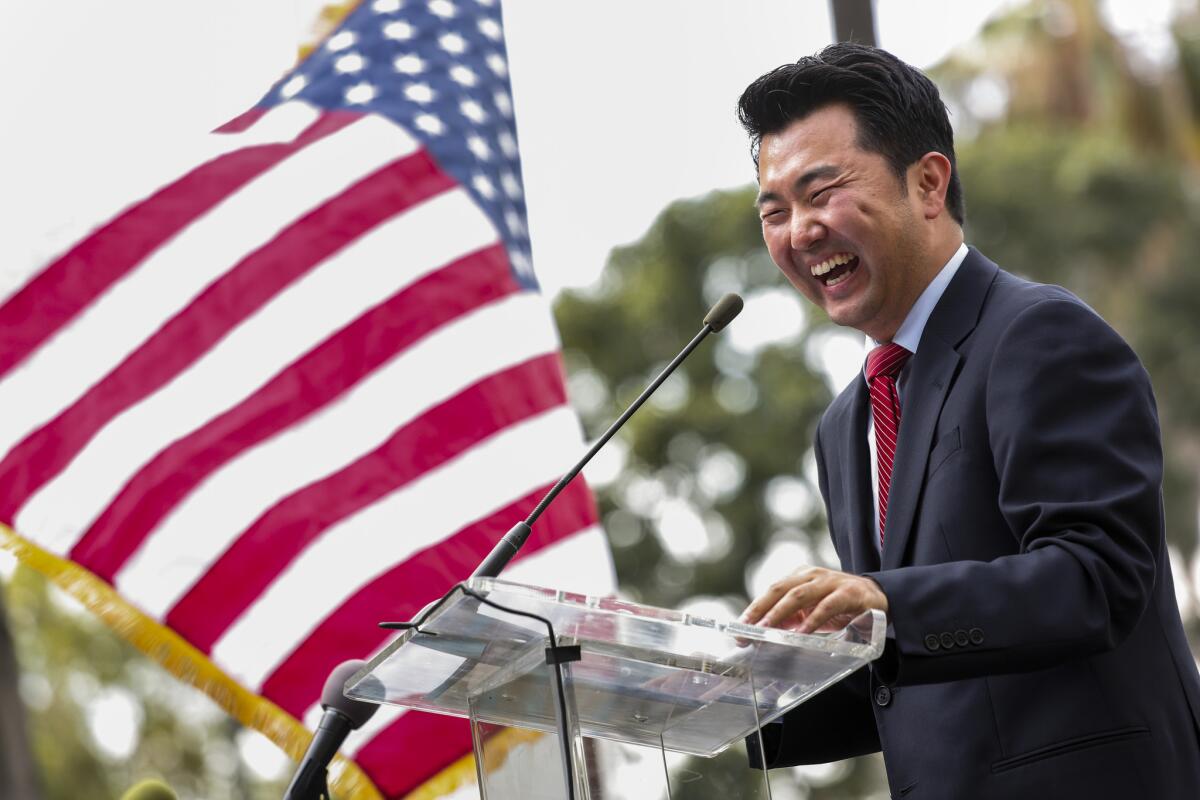
Ryu says his record on reform makes him the best positioned to fight corruption. In December, after years of delays, he prodded his colleagues to grudgingly pass restrictions on political donations from developers, who are among the biggest contributors to city politicians.
His opponent, former nonprofit executive Nithya Raman, contends that Ryu has not been effective at pushing through more meaningful proposals to fight corruption, including one that would prohibit any contributor that is not a human being — such as corporations, labor unions and other groups — from making donations to candidates for mayor, council and other city offices.
Ryu has failed to mobilize the public to pressure his colleagues to enact such changes, she argued.
“When he cites his record on these issues, he’s often citing a record of failure,” Raman said, arguing that the restrictions on developer donations passed by the council were “riddled with loopholes.”
Ryu argued that criticism of his efforts was a sign of progress. When he first called for fundraising restrictions, “people laughed and said that it was impossible,” he said.
Going from that to “‘it doesn’t go far enough’ is a tremendous step forward,” Ryu said.
Both Raman and Ryu want taxpayers to fully finance the campaigns of eligible city candidates, a proposal that has previously stalled at City Hall. And Raman, like Ryu, has pledged not to accept donations from real estate developers.
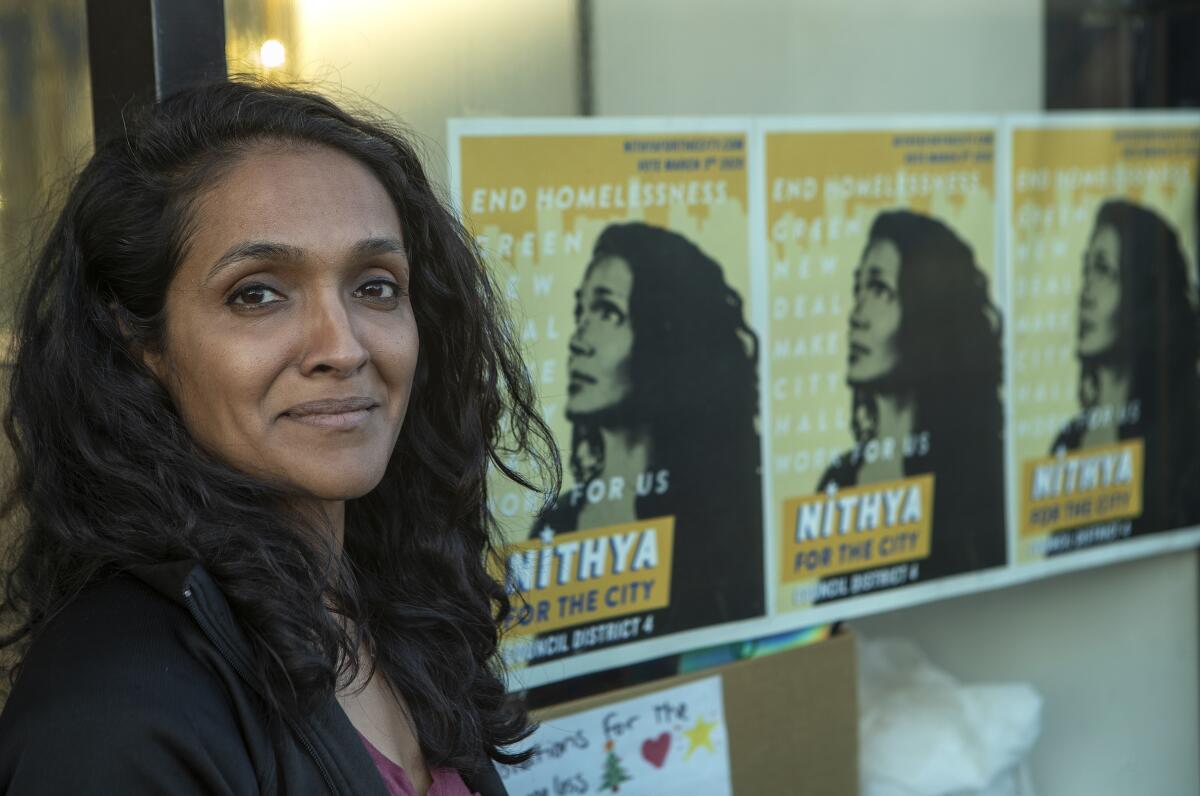
But Raman has also sworn off donations from corporations and other groups and said Ryu isn’t “walking the walk” by doing the same. Raman has also criticized Ryu’s proposal to create a new anti-corruption office, arguing that Los Angeles already has an Ethics Commission with a similar mission but city leaders have failed to fund it properly.
“L.A. is notorious for offices not talking to each other and not functioning well,” she said. “There’s a danger of a proliferation of departments tasked with the same outcome.”
Those concerns are shared by attorney Grace Yoo, who is running to replace Councilman Herb Wesson in a district that stretches from Koreatown to the Crenshaw Corridor. Yoo, who unveiled an anti-corruption platform in July, argues that an inspector general’s office for planning decisions would simply create more bureaucracy.
As L.A. officials battle the coronavirus pandemic, a corruption scandal has fueled mistrust in City Hall.
A better strategy, Yoo said, is to give the agencies charged with finding fraud and corruption — the Ethics Commission and the City Controller’s office — the funding and independence they need.
Yoo, who is waging an underdog campaign against County Supervisor Mark Ridley-Thomas, said that for decades, the mayor and City Council have controlled how much money goes to those agencies, leaving them at the mercy of those politicians. To make each office truly autonomous, voters should establish minimum funding levels for those offices that the mayor and council cannot cut, she said.
Yoo, who ran unsuccessfully for the seat in 2015, said the mayor and other L.A. city politicians should no longer have the power to choose the people who sit on the five-member Ethics Commission. The job of selecting those commissioners should be assigned to a panel of retired judges, she said.
“L.A. City Hall has allowed the fox to watch the hen house,” Yoo said in a statement. “That’s why we’ve had two councilmen arrested in the last six months, after years of corrupt and illegal acts.”
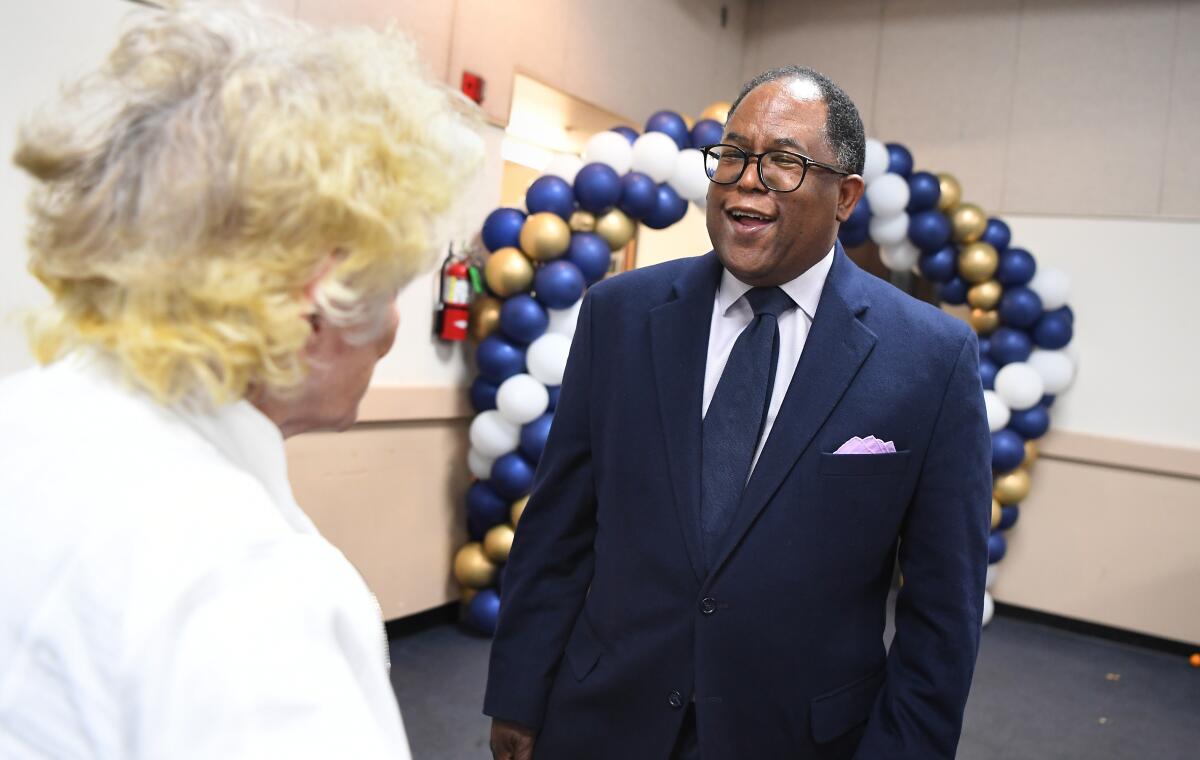
Ridley-Thomas, who is looking to return to the council after nearly 20 years, is also calling for changes at the Ethics Commission, saying the agency should have its own independent lawyer and the power to send reform proposals directly to the ballot. Under the current system, any ballot measure proposed by the commission cannot be sent to voters without the council’s sign-off.
“Providing this power to the commission would reduce potential political influence — so that those making the decisions at City Hall are not the ones also creating the rules,” he said in an email.
Ridley-Thomas, who has spent nearly three decades in city, county and state offices, also supports Ryu’s idea of a new anti-corruption office. But he cautioned that it needs “serious staffing, independence, broad authority, and the ability to trigger prosecutions.”
One reason that previous reforms have failed to root out the kind of corruption outlined in the ongoing federal probe, he said, is that laws were “irrelevant” to public officials who attempted to profit from their positions.
“What we need to do is increase the risk of getting caught,” he said.
Another idea that has gained attention among candidates and watchdog groups is expanding the council. Rob Quan, an organizer with the advocacy group Unrig LA, argued that smaller council districts would lead to more competitive elections, which he described as the city’s “best check against corruption.”
Ryu supports increasing the size of the council from 15 members to at least 25, while Raman wants the council to have at least 30 members.
Yoo said she would favor such a move if the council’s costs remained the same — and it resulted in better representation. But Ridley-Thomas has been deeply skeptical, saying voters aren’t interested in having more politicians.
More to Read
Sign up for Essential California
The most important California stories and recommendations in your inbox every morning.
You may occasionally receive promotional content from the Los Angeles Times.
